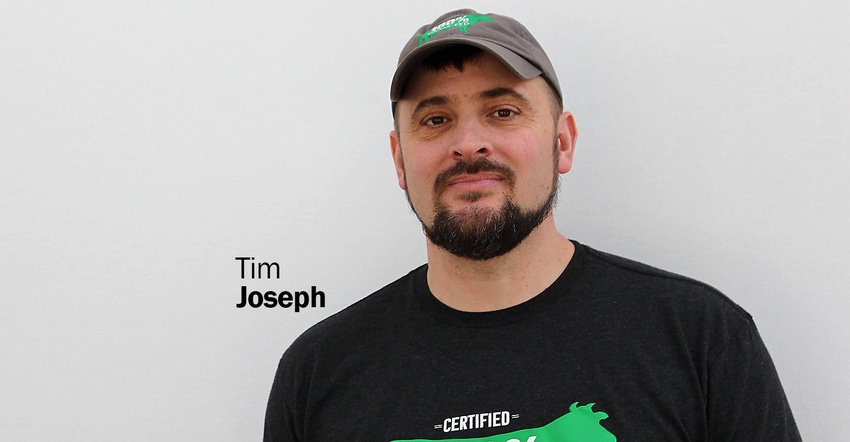Maple Hill Creamery's founding farmer breaks down the new standard that the company has developed with PCO and Organic Valley.

In an effort to further legitimize the grass-fed organic movement, Maple Hill Creamery and Organic Valley recently teamed up to create a third-party certification and seal, which should start popping up on shelves early 2018. Here, Tim Joseph, founding farmer at Maple Hill Creamery, explains the new standard and why it’s a critical step for the industry.
What does the new standard include? What benchmarks need to be hit?
Tim Joseph: First and foremost, the standard has at its foundation organic certification. It sits on top of the organic certification and provides the same traceability and supply chain integrity as organic, applied to grass-fed. The essence of the standard is that it prohibits feeding grain or corn of any kind, requires high forage intake from pasture during the growing season, and, like organic, provides a handling component so that we have the ability to maintain the integrity of grass-fed products from the farm, through processing and to the finished product on the shelf.
Why did you decide to create this sort of standard?
TJ: Maple Hill Creamery partnered with PCO a number of years ago to create the first version of this standard. We are already third-party certified grass-fed under the PCO certification and have been for over four years. To be successful at having a more broad impact, we really desired other legitimate grass-fed dairy brands to also operate under a certification, as that is the only way in the long term to try to protect the integrity of grass-fed products.
Thankfully, Organic Valley is a key partner in the process and also believes that certification is necessary to, first, protect those farmers that have taken real risks to produce a real grass-fed product that so many consumers are looking for, and second, to help ensure that when families across the U.S. decide to switch to grass-fed organic, they actually are getting what they pay for. That is currently not the case in dairy departments across the retail landscape. Over 80 percent of the products that make grass-fed claims on packaging are simply using the same milk they were last year (that is coming from cows that are fed grain and corn) and have simply added the claim to the package. In all of our research with consumers, it is very clear that the words “grass-fed” mean no grain and corn ever. The brands certified under this new standard will deliver on that promise.
What do retailers need to know about this?
TJ: They need to know that they are currently selling products that do not meet the expectations of grass-fed consumers, and that they need to start asking the right questions during the buying and category review process. To allow a claim such as grass-fed without asking brands for some sort of certification or process verification is not the right thing to do for their consumers or the category.
Is this standard limited to Maple Hill and Organic Valley, or will other brands be able to achieve it and put the seal on their labels?
TJ: The standard is a true third-party standard that will be owned by a multi-stakeholder, nonprofit entity. Our intention and desire is that other like-minded brands will adopt the standard and become certified as well. Some organic brands are making largely bogus grass-fed claims, and it's not good for legitimate grass-fed brands as we are competing against the same issue—and consumers are losing out. If a mom decides that grass-fed organic dairy is what she wants to feed her kids and her family, she should be able to buy grass-fed products with confidence that the grass-fed claim on the label is true.
About the Author(s)
You May Also Like


